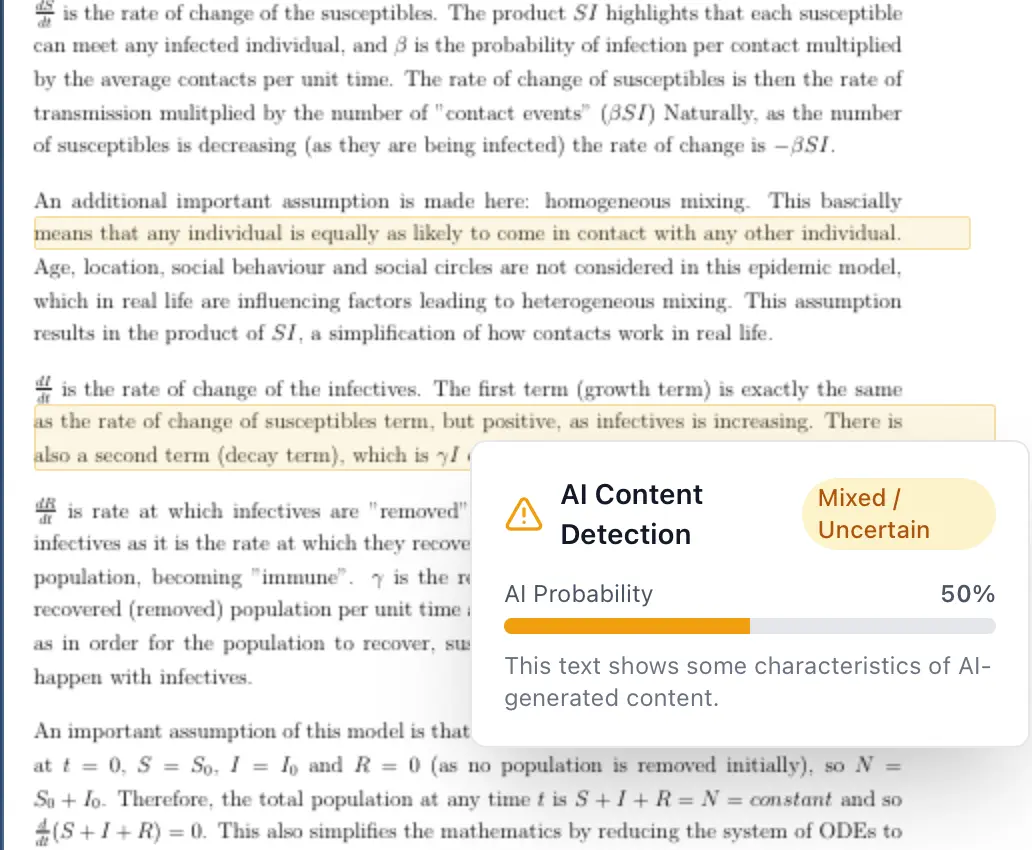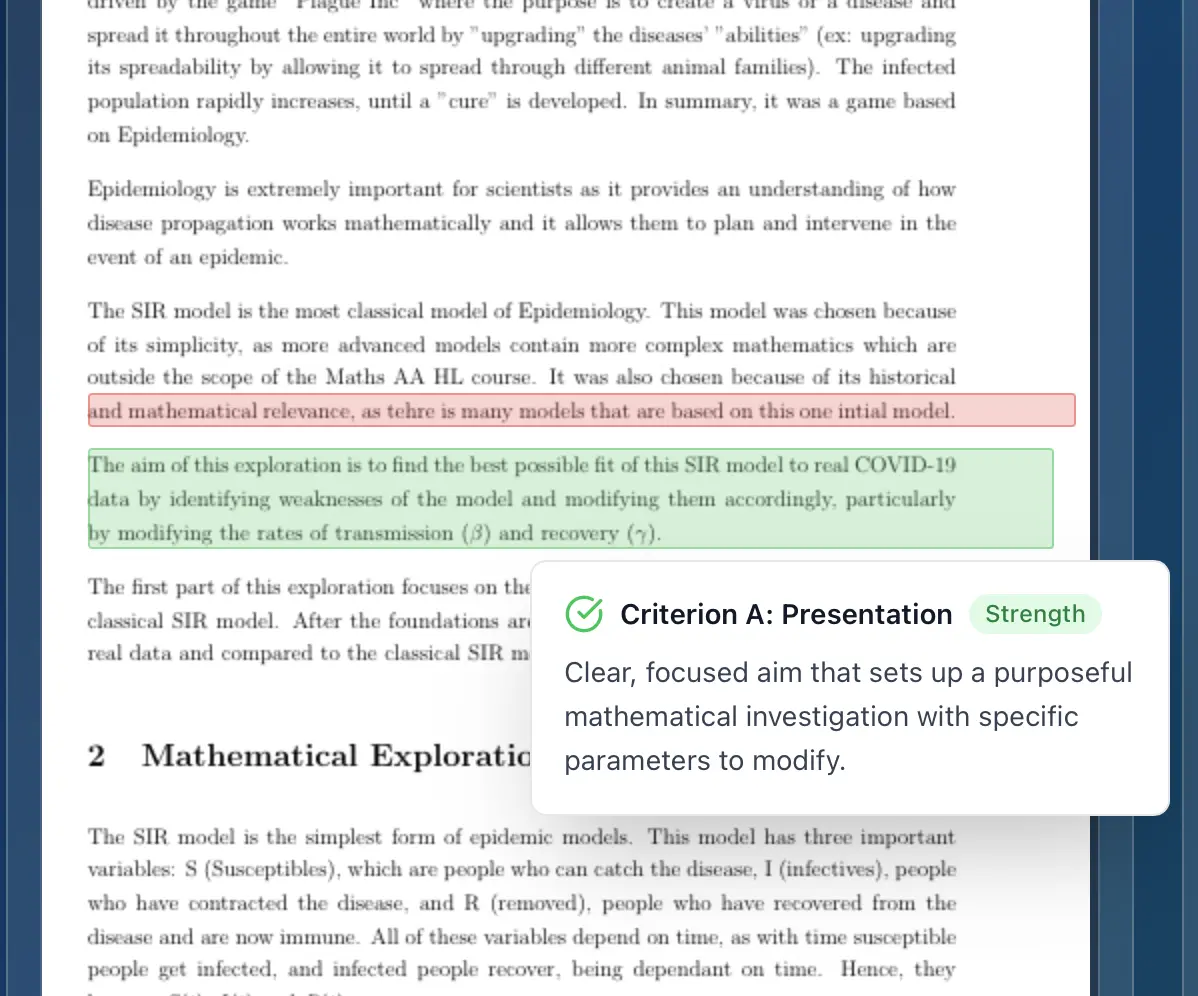How to Choose the Perfect IB History IA Topic
Choosing the right topic for your IB History Internal Assessment (IA) is arguably the most crucial step in achieving a high score. This guide will walk you through the process of selecting a compelling, manageable, and researchable topic that aligns with the IB History assessment criteria. We'll cover everything from brainstorming ideas to refining your research question, ensuring you're set up for success. By the end of this post, you'll have a clear understanding of how to choose a topic that not only interests you but also allows you to demonstrate your historical skills and knowledge to the fullest.
Why Your IB History IA Topic Matters
The IB History IA is a significant component of your overall IB History grade. It's your opportunity to delve into a historical topic that genuinely interests you, conduct independent research, and present your findings in a well-structured and analytical essay. A well-chosen topic can make the entire process more engaging and, ultimately, lead to a higher score. Conversely, a poorly chosen topic can lead to frustration, difficulty in finding relevant sources, and a lower grade.
Struggling with IB Assessments?
Get instant, detailed feedback on your work with AI that understands IB criteria.

Brainstorming Potential IB History IA Topics
The first step is to brainstorm a wide range of potential topics. Don't limit yourself at this stage; the goal is to generate as many ideas as possible. Consider the following:
- Your Interests: What historical periods, events, or figures fascinate you? Choosing a topic you're genuinely interested in will make the research process more enjoyable and sustainable.
- Course Content: Reflect on the topics covered in your IB History course. Are there any areas that particularly resonated with you?
- Local History: Exploring local historical events or figures can provide a unique perspective and access to primary sources that might not be available for more widely studied topics.
- Controversial Issues: Examining historical controversies can lead to engaging and thought-provoking research.
- Under-Explored Areas: Consider topics that haven't been extensively researched. This allows you to make a more original contribution.
Example Ideas:
- The impact of the Spanish Flu on a specific community.
- The role of women in a particular historical movement.
- The causes and consequences of a specific political assassination.
- The influence of propaganda on public opinion during a war.
- The economic effects of a specific historical event.
Refining Your Research Question
Once you have a list of potential topics, the next step is to refine them into focused research questions. A good research question should be:
- Specific: Avoid overly broad questions that are difficult to answer within the word limit.
- Focused: Narrow down your topic to a manageable scope.
- Researchable: Ensure that there are sufficient sources available to support your investigation.
- Analytical: Frame your question in a way that requires analysis and interpretation, rather than simply description.
From Topic to Research Question:
Let's take the topic "The Cold War" as an example. This is far too broad for an IA. Here's how we can refine it:
- Narrow the scope: Instead of the entire Cold War, focus on a specific aspect, such as the space race.
- Formulate a question: "To what extent did the space race contribute to the escalation of tensions between the United States and the Soviet Union during the Cold War?"
- Refine for analysis: "How did the propaganda surrounding the space race shape public perception of the Cold War in the United States between 1957 and 1969?"
Another Example:
- Broad Topic: World War II
- Refined Topic: The Battle of Stalingrad
- Research Question: "To what extent was the harsh winter of 1942-1943 the decisive factor in the Soviet victory at the Battle of Stalingrad?"
Assessing the Availability of Sources
Before committing to a topic, it's essential to assess the availability of relevant sources. Consider the following:
- Primary Sources: These are original sources from the time period you're studying, such as letters, diaries, government documents, photographs, and artifacts.
- Secondary Sources: These are interpretations and analyses of historical events written by historians and other scholars.
- Libraries and Archives: Check the availability of sources in your local libraries and archives.
- Online Databases: Utilize online databases such as JSTOR, ProQuest, and Google Scholar to search for scholarly articles and books.
- Museums and Historical Societies: These institutions often hold valuable primary source materials.
If you struggle to find sufficient sources, you may need to reconsider your topic or broaden your search strategy.
Aligning Your Topic with the IB History IA Criteria
The IB History IA is assessed based on specific criteria. It's crucial to choose a topic that allows you to demonstrate your skills in each of these areas. Here's a breakdown of the criteria and how to align your topic with them:
- Criterion A: Identification and Evaluation of Sources (6 marks)
- Focus: This criterion assesses your ability to formulate a clear research question, select appropriate sources, and analyze the value and limitations of two key sources.
- Topic Alignment: Choose a topic where you can access a variety of sources with different perspectives and biases. This will allow you to demonstrate your critical evaluation skills.
- Example: If you're studying the Cuban Missile Crisis, you could analyze a letter from Kennedy to Khrushchev and a Soviet propaganda poster, evaluating their origins, purpose, and content.
- Criterion B: Investigation (15 marks)
- Focus: This criterion assesses your ability to conduct a focused and well-organized investigation, utilizing a variety of sources to support a clear argument and considering different perspectives.
- Topic Alignment: Choose a topic that allows you to develop a clear and coherent argument supported by evidence from a variety of sources.
- Example: If you're investigating the causes of World War I, you could analyze the role of nationalism, imperialism, and militarism, drawing on sources from different countries and perspectives.
- Criterion C: Reflection (4 marks)
- Focus: This criterion assesses your ability to reflect on the challenges and limitations of historical research methods, drawing on your own experience.
- Topic Alignment: Choose a topic that allows you to reflect on the challenges you faced during your research, such as accessing sources, interpreting evidence, and dealing with conflicting perspectives.
- Example: You could reflect on the difficulties of accessing primary sources from a particular time period or the challenges of interpreting biased sources.
Pro Tip: Get AI-Powered Grading
Stop second-guessing your grades. Get instant feedback aligned with official IB rubrics.

Common Challenges and Mistakes When Choosing an IB History IA Topic
- Choosing a Topic That's Too Broad: This makes it difficult to conduct focused research and develop a coherent argument.
- Solution: Narrow down your topic to a specific aspect or time period.
- Choosing a Topic That's Too Narrow: This can limit the availability of sources and make it difficult to develop a substantial investigation.
- Solution: Broaden your topic slightly or consider related areas of inquiry.
- Choosing a Topic Without Sufficient Sources: This can lead to frustration and difficulty in completing the IA.
- Solution: Conduct a preliminary source search before committing to a topic.
- Choosing a Topic That Doesn't Interest You: This can make the research process tedious and unmotivating.
- Solution: Choose a topic that genuinely fascinates you.
- Failing to Align the Topic with the IB History IA Criteria: This can result in a lower score.
- Solution: Carefully review the IB History IA criteria and choose a topic that allows you to demonstrate your skills in each area.
Advanced Tips and Strategies for Selecting a Winning Topic
- Consult with Your Teacher: Your teacher can provide valuable guidance and feedback on your topic ideas.
- Read Sample IAs: Reviewing sample IAs can give you a better understanding of what constitutes a successful investigation.
- Develop a Detailed Research Plan: Before you begin your research, create a detailed plan outlining your research question, sources, and methodology.
- Be Flexible: Be prepared to adjust your topic or research question as you progress through your investigation.
- Think Critically: Approach your research with a critical mindset, questioning assumptions and considering different perspectives.
- Consider the Historiography: Research what other historians have already written about your topic. This will help you identify gaps in the existing literature and develop a more original argument.
Technology and Modern Assessment: How AI Can Help
In today's digital age, technology is transforming the way we approach historical research and assessment. AI-powered tools can assist with tasks such as source analysis, data visualization, and even essay writing. However, it's important to use these tools responsibly and ethically, ensuring that you maintain academic integrity and develop your own critical thinking skills.
One of the biggest challenges for both students and teachers is ensuring consistent and accurate feedback on IB History IAs. This is where Marksy comes in. Marksy is an AI grading assistant specifically designed for the International Baccalaureate. It provides instant, accurate, and detailed feedback on student work based on the official IB rubrics. This means students receive clear, actionable guidance on how to improve their work, and teachers save valuable time while maintaining assessment quality.
Marksy uses the official IB criteria to ensure accuracy and fairness. It provides rubric-aligned scoring, detailed criterion-by-criterion feedback, and suggestions for improvement. By leveraging AI, Marksy helps students understand exactly how to improve their work and helps teachers provide consistent, detailed feedback on IB assessments. This not only saves educators time but also ensures that students receive the targeted support they need to succeed.
Conclusion: Your Next Steps to IA Success
Choosing the perfect IB History IA topic is a critical first step towards achieving a high score. By following the tips and strategies outlined in this guide, you can select a topic that is engaging, manageable, and aligned with the IB History IA criteria. Remember to brainstorm widely, refine your research question, assess the availability of sources, and consult with your teacher.
Now that you have a better understanding of how to choose the perfect IB History IA topic, it's time to take action. Start brainstorming potential topics, refine your research question, and begin your source search. And remember, for accurate and efficient feedback on your IA drafts, consider using Marksy.
Ready to take your IB History IA to the next level? Try Marksy for free today and experience the power of AI-powered feedback! Sign up for a free trial and see how Marksy can help you achieve your best possible score.